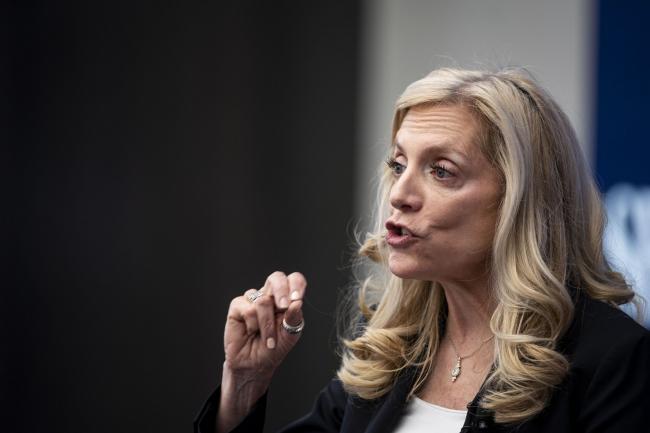(Bloomberg) -- The financial stresses stemming from the failure of two American banks last month seem to be subsiding, President Joe Biden’s top economic policy adviser said.
“There’s good reason to think the situation has stabilized,” Lael Brainard, the new head of the National Economic Council, said Wednesday.
Brainard didn’t answer directly whether there could be other bank failures this year, deferring to officials charged with oversight.
“I can’t speak to the supervision of individual banks because I’m not in the supervision business,” Brainard told CNN’s Poppy Harlow at Semafor’s World Economy Summit. “But I can say that, generally speaking, we’ve seen deposit outflows stabilize, all of the indicators that one would look at have really improved over the last few weeks.”
Observers are watching for the release of bank earnings, many set to be announced Friday, to see signals of the health of the sector.
Following the collapse of Silicon Valley Bank and other entities that whipsawed global markets last month, Biden has pushed for a series of regulatory reforms to prevent similar bank runs in the future. Those recommendations included enhanced liquidity and capital stress tests.
Stronger banking stress tests requirements could have prevented the bank failures, Brainard said. She specifically cited stress tests for interest-rate hikes and uninsured deposits, which she said would have alerted regulators to the potential for SVB’s collapse and could have made “a material difference.”
“Do I think liquidity stress tests would have alerted the supervisors to the fact that uninsured deposits were a huge percentage of deposits, really unusual in the case of Silicon Valley? Yes, I do,” she said.
“They didn’t have liquidity requirements, they didn’t have capital stress tests — they hadn’t had a single one,” Brainard added in her second press interview and more expansive public remarks since stepping into her role at NEC.
The administration has also called for the reinstitution of rollbacks to the Dodd-Frank Act put in place during the Trump administration. Those measures eased requirements on mid-sized banks like SVB. While serving on the board of governors of the Federal Reserve, Brainard warned of the risks of regulatory rollbacks to Dodd-Frank in 2019.
“I think, with the benefit of hindsight, it is a little bit of a lesson,” she said Wednesday.
The failures of SVB, Signature Bank (OTC:SBNY) and Silvergate Capital (NYSE:SI) Corp. proceeded stress in the banking sector in Europe, ultimately leading to a takeover of the Swiss industry-leader Credit Suisse Group AG. The White House, including the president, has said the situation has stabilized.

